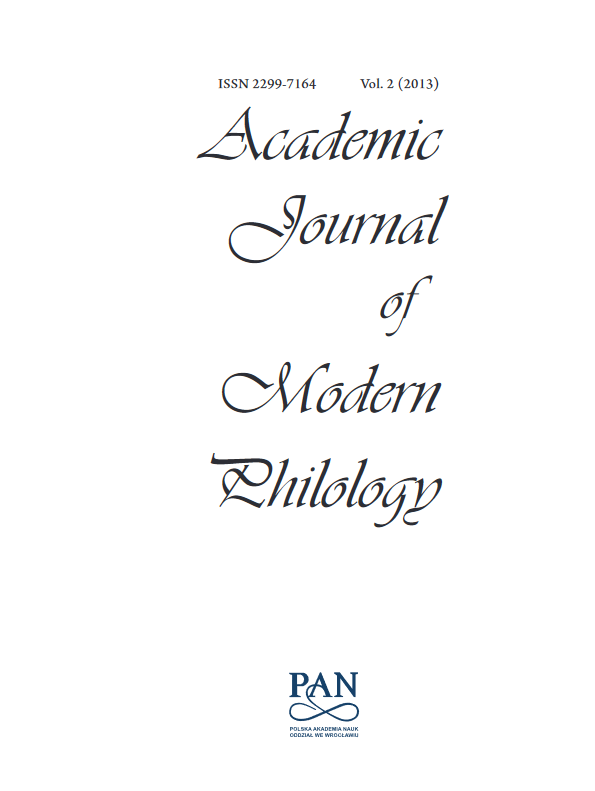The Concept and Purpose of Death in the Aeneid, Book 2
The Concept and Purpose of Death in the Aeneid, Book 2
Author(s): Jacek Mianowski, Łukasz ZarzyckiSubject(s): Language and Literature Studies, Studies of Literature, Theory of Literature
Published by: Komisja Nauk Filologicznych Oddziału Polskiej Akademii Nauk we Wrocławiu
Keywords: Troy; Rome; epic; death; founding; heroism; Aeneid; Vergil
Summary/Abstract: The article aims at analyzing the concept and purpose of death in the Aeneid, Book 2. In its premise, the concept of death presented within the poem reveals its ethnic, social and cultural tone. The deaths which close eight books of the Aeneid indicate the progress of a main theme: abdicate the past to defend the future. Initially, towards the closing of Book 2 Creusa dies: a loyal, affectionate wife and mother who is nevertheless to be replaced by a young bride chosen for political benefits. The modes and circumstances of the deaths elicit some immediate investigations: first, it seems meaningful that some die in the bloom of youth and others in old age; second, some must die as sacrifices to the gods; third, some are destined to die because they demonstrate furious difficulties to the completion of Aeneas’ duty. Before discussing the concept of death in Book 2 it is essential to introduce the reader into some considerations representing the structure and purpose of Book 2. The authors would like to thank professor Jakub Pigoń (Institute of Classical, Mediterranean and Oriental Studies, University of Wroclaw) for his guidance and insightful remarks throughout the process of writing of this article.
Journal: Academic Journal of Modern Philology
- Issue Year: 2013
- Issue No: 2
- Page Range: 67-73
- Page Count: 7
- Language: English

